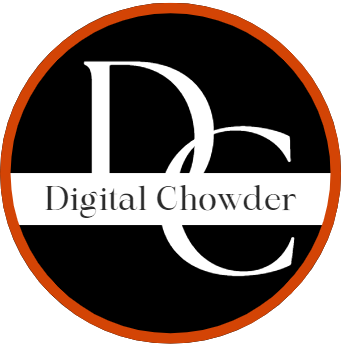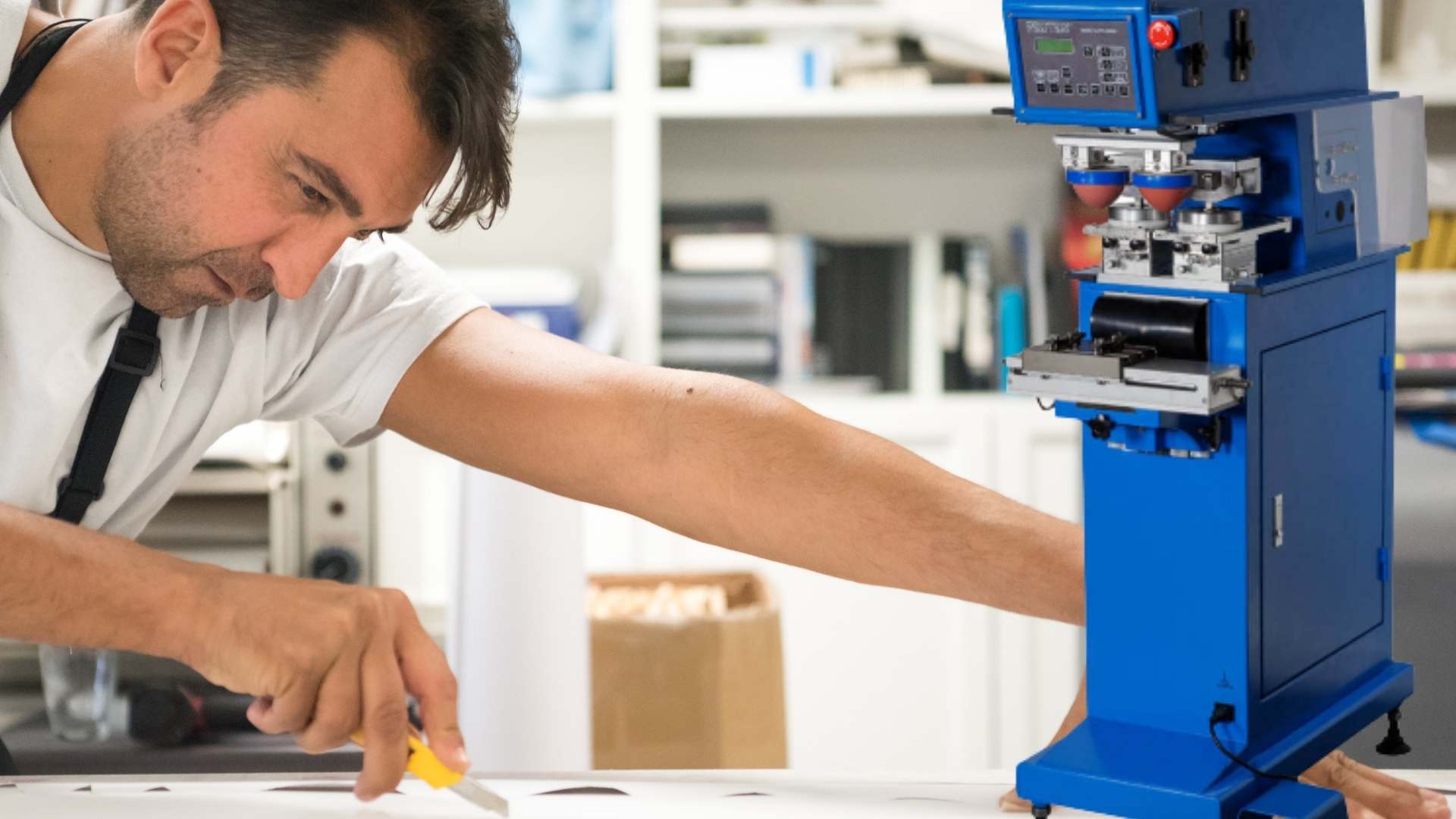
How Can A Pad Printer Help Your Home Business?
What Is A Pad Printer? If your business transfers two-dimensional images onto three-dimensional objects, that question could interest you. Your quality might be lacking if you use screen printing or another technique rather than pad printing. The pad printer is made specifically for this print job.
But you may also be looking for a way to take your home business to the next level. Pad printing can benefit your existing business but can also be an avenue for diversifying your business or starting a new one.
What Is Pad Printing?
Pad printing is an indirect offset where ink from a laser engraved plate is transferred onto a 3-D object using a silicon pad. Thanks to pad printing, a process once difficult or impossible to complete is now available for customization. With the pad printer, it is possible to print on such materials as:
- Aluminum
- Cellulose acetate
- Ceramics
- Chromium-plated surfaces
- Coated surfaces
- Cotton
- Duroplastics (phenolic and melamine resins, glass-fiber reinforced polyester, and epoxy resins)
- Glass
- Gold-plated surfaces
- Leather
- Metals
- Nickel-plated surfaces
- Paper
- Plasticized PVC
- Polyester (PES)
- Rubber
- Silicone rubber
- Synthetic leather
- Wood
- and many more
By broadening the types of materials you can print on, you also enlarge the number of doors opening for starting a new business or expanding an already current one. With being able to print on any of the following surfaces, your printing ventures could include:
- 1. Custom coasters
- 2. Ceramics such as mugs, plates, and bowls.
- 2. T-shirts
- 3. Golf balls
- 4. Keychains
- 5. Magnets
- 6. Notepads
- 7. Pens
- 8. Mousepads
- 9. Stickers
- 10. Glassware Decoration
- 11. Metal Signage
- 12. Promotional Items such as pens and buttons
- 13. Product Labeling
- 14. Barcodes
This list is not exhaustive, but it should pique your thinking about the limitless options. These choices might be made available as promotional goods for your company or to sell, or you may contract with other firms to print on products they create or market.
Basics of Pad Printing
How does a pad printer work?
Three components are necessary for a pad printing machine to deliver a print to an object: the plate, the ink cup, and the pad.
The Plate: The printing plate holds the image you want to engrave on the object. Common ones are plastic – thin metal plates covered using photosensitive plastics. They are known for their flexibility, cheapness, and easy printing. Another type is the steel plate, known for toughness and durability and better suited for large production runs.
The Pad: The mechanism that transfers ink in a pad printing machine is called the printing pad. With the image on the pad, the pad stamps it onto the object.
Pads are silicone, with the type and hardness depending on their purpose. Pads also come in diverse shapes and sizes, determined by the application and artwork.
The Ink Cup: An ink cup is a mechanism that contains the ink printed on a component. The ink cup travels over a plate containing the etch and then returns, leaving only a tiny amount of ink in the etched region.
The ring and cup are the two essential parts of an ink cup. The plate has a ring that slides over the cup to limit ink to locations on the plate consistent with the image. Some manufacturers use ceramic, metal, and plastic rings in their products.
For more details, go to:
- Step by Step Guide: https://www.printinginternational.com/story-printing-international/what-is-pad-printing/
- Training & Expert Advice: https://itwtranstech.com/services/training/
Cost of getting started
Suppose you’re wondering how much it costs to begin pad printing. In that case, the answer is relative to whether you plan on utilizing it for existing business ventures or starting an independent pad-printing-based business.
Print Projects within your business
With an established business, you may wish to print your company name or logo on goods as a marketing technique. For example, publishing your firm’s name and logo on coffee mugs as a giveaway is an option. You may rent a little pad printer for $310 from here. A printer with this price range would come with supplies such as ink, paper, and plates, but not necessarily the printer itself.
Pad Printer Business
There are a variety of print projects that a company may undertake. Therefore, the cost depends on the nature of the job. Other factors contributing to the cost are the size and quantity of the product to be imprinted. To give an example, I’ll utilize one case study; you may tailor it to your needs.
This example will use mugs as the product of choice using the Printa Systems ready-made printing system.
The Printa System provides you with the high-quality equipment needed to run your business and the expert training necessary for success. With this particular plan, you are leasing to buy the 990 Series Silver Pad Printer System. The cost of the machine is $3995, with shipping totaling an extra $110—making the total $4105. Your contract stipulates that you pay out this lease at a manageable monthly rate of $138.75 for 48 months. At the end of this period, you will own the equipment.
It is wise to keep it simple and start with a niche market such as mugs. But the equipment you purchase will enable you to branch out and print many other things like water bottles, pens, glasses, cups, and golf balls. You won’t need to purchase any extra machinery.
In addition to the equipment, you will also receive training on how to use it. The session covers setup, preparation, artwork, printing, and more topics. This way, even if you have never worked with a printer, you can get started without trouble.
Go to this link to explore the information further.
Other Ideas: This is only one way to secure the printing equipment. However, this example may serve as a guide for the cost and capacity of a pad printery. Furthermore, this method allows you to start without making a significant financial investment.
Go to https://www.printa.com/business-resources/how-to-start-a-mug-printing-business for more information about the printa system.
Ideas For Identifying Business Clients
After you’ve decided to start your own pad printing company and have acquired your equipment, you will now need print jobs. Enlisting jobs may be the most challenging part of launching a print shop business for you. Where can you locate customers, and how will you entice them?
Individual Customers
If you operate a home-based business, realize that foot traffic will not contribute to your success as it would for a store-front operation. Your primary customers deliberately seek out your products or services online or through word of mouth.
Any mode of advertisement or promotion (aside from a street-level sighting) places you on equal footing with the store-front business owner. Those ads can easily direct customers to your website, make a phone call, or send an email inquiry.
Business Clients
You’re not limited to only finding individuals as customers; business clients are another great option. If you pad print any products, find businesses that make and sell those same items so they can use your service for imprinting purposes.
Teaming up with this type of business can make sense financially because you would print more items and get stable work. In other words, having just a few contracts like this could be all your company needs to do well. Once established, you can increase your production with more of the same printing or start imprinting onto different products–or both! This way, your printing volume will go up, along with how much money you’re making.
Here are some reasons why choosing a B2B approach to identifying print jobs might be wise. These ideas come from the article, “Why B2B is a Better Choice for a Print Shop Franchise,” published by Signarama Franchise.
Conclusion
To summarize, pad printers can be highly beneficial to home business owners:
Business projects can help you create professional-looking marketing materials and personalized gifts and save money on commercial printing services.
Start a new business: Starting a pad printing business can be a great way to earn extra income from home. Anyone can get started in this rewarding field with a small investment in equipment and supplies!
Please share your thoughts or experiences in the comment section below. What would you like me to write about? Contact me at: wayne@digitalchowder.com

